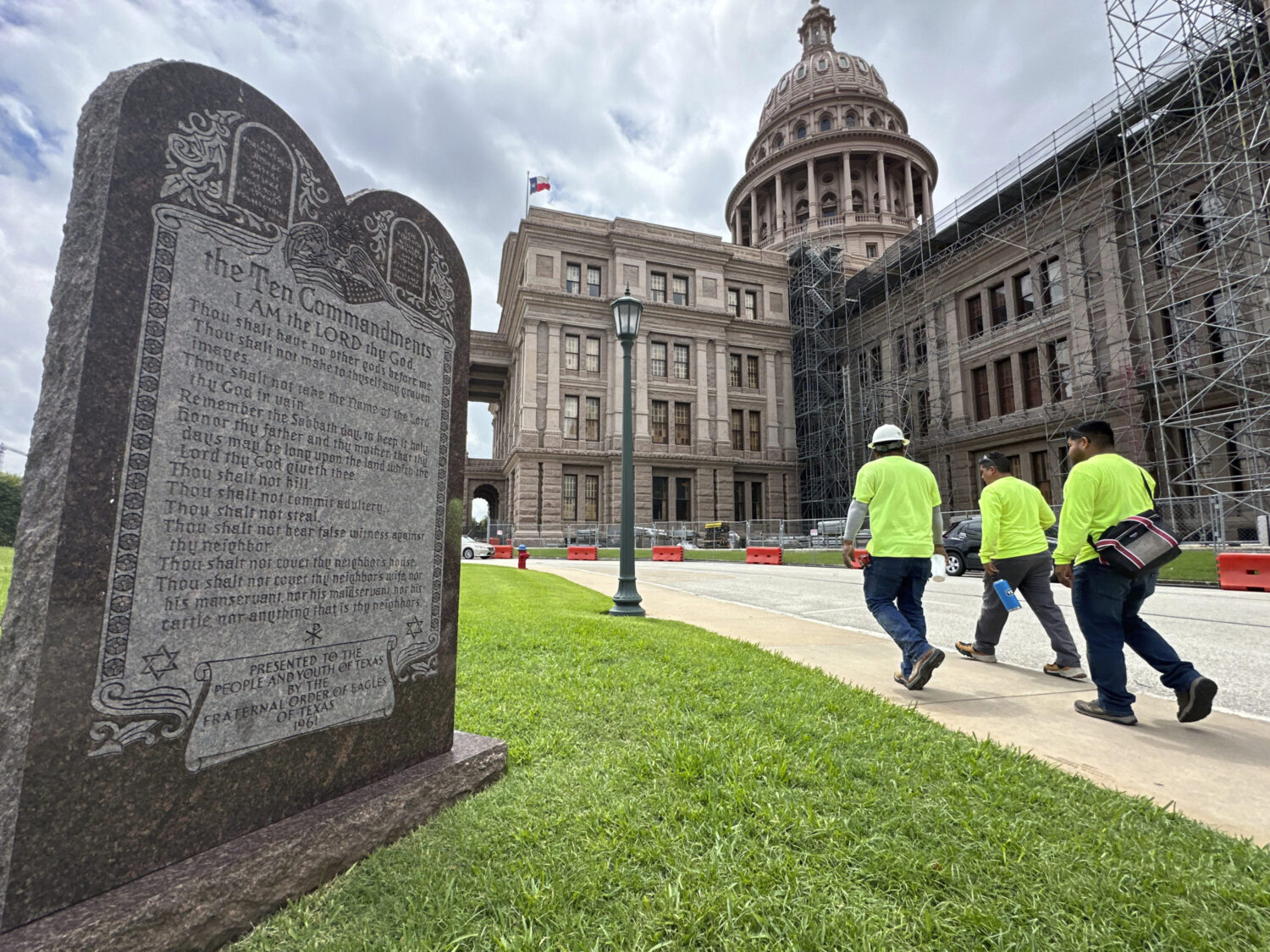Introduction to the Debate
Two major bills involving religion in public schools are currently on Texas Gov. Greg Abbott’s desk, awaiting his decision. If Abbott signs either bill, it will likely lead to legal challenges under the Establishment Clause of the First Amendment. This clause is part of the U.S. Constitution and ensures the separation of church and state.
The Bills in Question
Senate Bill 10
Senate Bill 10 would require the display of an explicitly Protestant wording of the Ten Commandments in all Texas public school classrooms. This bill has sparked controversy, with many arguing that it favors one religion over another and could coerce religion upon students.
Senate Bill 11
Senate Bill 11, on the other hand, would allow school district trustee boards and charter school governing bodies to set aside time for prayer and Bible reading. However, participation in these activities would be entirely voluntary and would require a signed consent form from the employee or the parent or guardian of the student.
Potential Legal Challenges
Both bills are expected to trigger challenges from various groups under the Establishment Clause. A federal district court has already blocked a similar law in Louisiana, and several civil liberties groups have pledged to sue Texas if Abbott signs Senate Bill 10. The key analysis in any legal challenge would be whether or not the bills coerce religion upon students or favor one religion over another.
The Impact of Recent Court Decisions
The legal debate over both bills hinges on the interpretation of a 2022 U.S. Supreme Court decision, Kennedy v. Bremerton School District. In this decision, the justices ruled that a high school football coach’s praying on the field during and after games did not violate the Establishment Clause. Supporters of the bills argue that this decision reversed several older precedents restricting religious practices or displays in public schools. However, opponents contend that the Kennedy ruling is significantly more limited and that those older precedents are still valid.
Expert Insights
According to Steven Collis, a law professor at the University of Texas at Austin, the Legislature is trying very hard to avoid challenges by making participation in prayer and Bible reading voluntary. "Where we’re at right now is that we know schools cannot do school prayer in a way that coerces religious acts upon students," Collis said. "So, if you look at (Senate Bill 11), and if you look at the specific text, you can tell the Legislature is trying very, very hard to avoid those types of challenges."
Conclusion
The fate of these bills now rests in the hands of Governor Abbott, who has until Sunday, June 22, to either sign or veto them. If he does neither, they will become law by default. Many, including Guthrie Graves-Fitzsimmons, a vice president of the Interfaith Alliance, are holding out hope that the governor will reject the bills at the last moment. As Graves-Fitzsimmons said, "Religion thrives and flourishes when it is free from the government’s interference." The outcome of this debate will have significant implications for the separation of church and state in Texas and potentially set a precedent for other states to follow.




